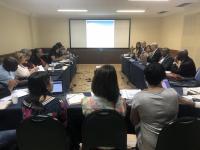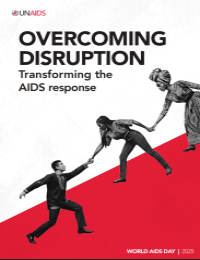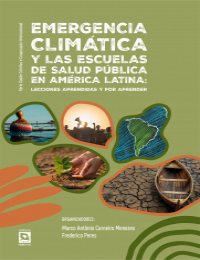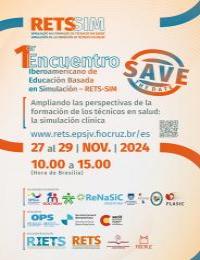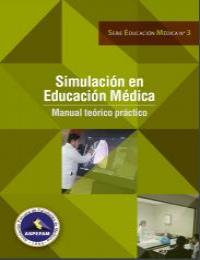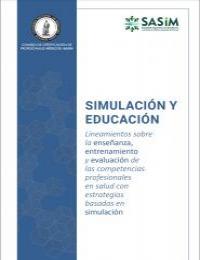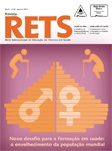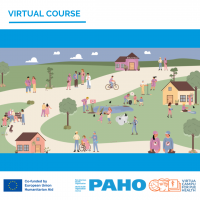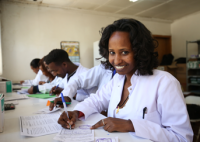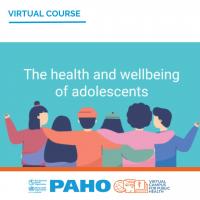-
01/08/2019 - Professionals in public health, international relations and related fields are invited to apply to the 2019 session of the Pan American Health Organization’s (PAHO) Leaders in International Health program. Applications must be received by Feb. 15.
-
12/19/2018 - The Brazil Africa Institute (IBRAF) and the Community of Portuguese Speaking Countries (CPLP) signed, in a ceremony at CPLP’s headquarters in Lisbon, a Memorandum of Understanding (MoU) for the creation of partnerships and the development of projects. The act was attended by the board of the CPLP and by the Ambassador of the Brazilian Mission to the entity, Gonçalo Mourão.
-
12/13/2018 - Cooperation project between Fiocruz and Brazil-Africa Institute demands course of Maintenance of Equipment of Pathology Laboratory to the Polytechnic School
-
12/12/2018 - Ministers of Health from MERCOSUR and Associated States have signed a declaration to place health at the front and center of national climate change adaptation plans. This aims to ensure that health systems become climate resilient, and that health prevention and promotion are fully integrated with climate services, as per recommendations from the Pan American Health Organization (PAHO).
-
12/07/2018 - Meeting the goals of the Paris Agreement could save about a million lives a year worldwide by 2050 through reductions in air pollution alone. The latest estimates from leading experts also indicate that the value of health gains from climate action would be approximately double the cost of mitigation policies at global level, and the benefit-to-cost ratio is even higher in countries such as China and India.
-
11/30/2018 - In the 20 countries that make up the International Network of Health Technicians Education (RETS), whose executive secretariat is headquartered at the Joaquim Venâncio Polytechnic School of Health (EPSJV/Fiocruz), there are major differences in relation to the characteristics of the institutions responsible for training of health technicians, as well as the modalities and degrees of education offered for these professionals. These multiple training and work experiences, with emphasis on primary health care (PHC), were highlights of the 4th RETS General Meeting, held on November 12th to 14th, in Rio de Janeiro, concomitantly with the 4th Ordinary Meeting of the Technical Health Schools Network of the Community of Portuguese-Speaking Countries (RETS-CPLP). RETS ' mission is to promote the articulation between institutions and organizations involved in the training and qualification of technical personnel in the health field in countries of the Americas, Africa, Asia, and Portugal.
-
11/30/2018 - During the 4th Regular Meeting of the Technical Health Schools Network of the Community of Portuguese-Speaking Countries (RETS-CPLP), held on November 12 and 13 in Rio de Janeiro, representatives of the countries of the CPLP presented the scenario of Primary Care (PHC) in their health systems. In addition, RETS-CPLP members approved the new Network 2019-2022 work plan and confirmed EPSJV/Fiocruz as their coordinating institution.
-
11/28/2018 - To consolidate the International Network of Health Technicians Education (RETS) and its mission to support the training and qualification of technical workers in health, in international cooperation processes in the Americas and in the Community of Portuguese Speaking Countries (CPLP). This was the main objective of the 4th General Meeting of RETS, held from November 12 to 14 in Rio de Janeiro, together with the 4th RETS-CPLP Ordinary Meeting in Rio de Janeiro. For three days, about 40 institutional representatives evaluated the work done over the years and, among other things, drafted the network work plan for the period 2019-2022. The group also defined and agreed with a communication plan for RETS, as well as relegated EPSJV/Fiocruz as the executive secretariat of the Network. On the first day of the event, after the opening ceremony, the seminar '40 years of Alma-Ata and the role of health technical workers in the implementation of universal health systems' was held, with the presence of Paulo Buss, former president and current coordinator of the Center for International Relations in Health (CRIS) of Fiocruz, and Isabel Duré, Secretary of Health of the Ministry of Health and Social Development of Argentina. The seminar was opened to the public and broadcasted live over the Internet. At the end of the meeting, members of RETS issued the Declaration of Rio de Janeiro, in which they asked local, regional and global authorities to pay more attention to the training and work of health technicians.
-
11/28/2018 - The 40 years of Alma-Ata and the role of health technicians in the implementation of universal health systems was the theme of the opening seminar of the 4th Meeting of the International Network of Health Technicians Education (RETS), held from 12 to 14 November, in Rio de Janeiro, together with the 4th Ordinary Meeting of the Community of Portuguese Speaking Countries (RETS-CPLP) sub-network. The debate was mediated by professor at the Polytechnic School of Health Joaquim Venâncio (EPSJV/Fiocruz) Márcia Valéria Morosini and it has counted on Paulo Buss, Fiocruz ex-president and current coordinator of Fiocruz's Center for International Relations (Cris), and the Ministry of Health and Social Development of Argentina advisor, Isabel Duré. "It's very difficult to talk about Astana and the current moment without reviewing what Alma-Ata was like. One of the main reversals was that the Astana Declaration assumes that Alma-Ata lives by the power of its document. It was a difficult achievement for Brazil, for the other South American countries that were together there and also for African countries that know the importance of primary care in institutional life, in the life of the people, in the life of the health system", began Buss , proposing to make a historical rescue: "At the heart of Alma Ata's approach there are ideas such as universal accessibility, equity, integration of prevention and treatment, government responsibility for population health and community participation."
-
10/31/2018 - The 4th General Meeting of the International Network of Health Technicians Education (RETS) will be held from November 12 to 14 in Rio de Janeiro, together with the 4th Regular Meeting of the Network of Technical Health Schools of the Community of Portuguese Language Countries (RETS-CPLP). The first part of the program - the seminar '40 years of Alma-Ata and the role of the health technicians in the realization of universal health systems' - will be open to the general public and broadcast live on the Internet. In the seminar, Paulo Buss, the former president and current coordinator of Fiocruz's International Relations Center (CRIS), will present the theme 'From Alma-Ata's declaration to Astana's declaration: universal right or universal health coverage?'. Isabel Duré, from the Department of Health, Ministry of Health and Social Development of Argentina, will discuss 'Unfinished agenda of training and work of health technicians after 40 years of the Alma-Ata Declaration'. The roundtable, which will be moderated by the professor and researcher Márcia Valéria Cardoso Morosini, from the Polytechnic School of Health Joaquim Venâncio (EPSJV/Fiocruz), will take place on November 12 from 9:00 a.m. to 12:30 p.m. (Brasilia time)) in the EPSJV Auditorium.








